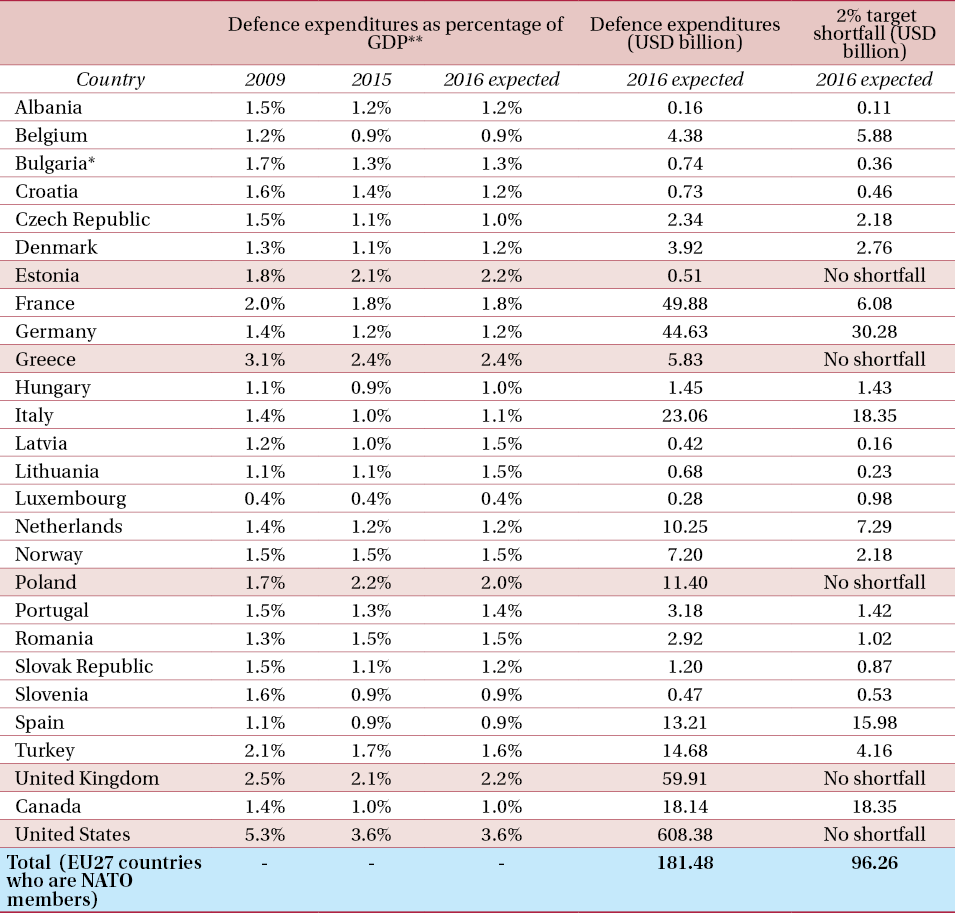Blog Post
Trump, NATO and European defence spending
US President-Elect Donald Trump made critical statements about low European defence spending during the election campaign - signaling an expectation that Europe should contribute more to the cost of its security. Indeed, most European NATO members have spending well below the 2% target that NATO membership entails. Reaching this target could cost the EU27 NATO members 96 billion USD per year.
In the aftermath of Donald Trump’s election, European defence spending has come into focus. During the campaign, President-Elect Trump’s stance on NATO and the US contribution to its funding was persistently critical.
Indeed, Trump has called for a major rethink on NATO: “We pay, number one, a totally disproportionate share of NATO. We’re spending the biggest, the lion share’s paid for by us, disproportionate to other countries.”
NATO membership comes with financial obligations. Members have to contribute to the organisation’s core budget (calculations rely on gross national income). More importantly, they are also expected to meet a defence spending target of 2% of GDP but most NATO members have long failed to reach this level.
Table 1 displays defence spending to GDP per country over the time period 2009-2016.
Table 1 – Defence expenditures as percentage of GDP (based on 2010 prices), expected defence expenditures in 2016 and “2% target” defence expenditures in 2016.
* Data do not include pensions. ** based on 2010 prices.
Source: the above table was created using time series computed by NATO. We used the last press release on defence expenditures: http://bru.gl/2fcxLKJ.

Only five countries out of the 28 NATO members were above the 2% target in 2015: Estonia, Greece, Poland, the United Kingdom and the United States. France spent less than 1.8% of its GDP on defence in 2015; Italy and Germany less than 1.2%. However, it is worth noting a shifting global trend amongst the NATO countries: after six years of decreasing defence expenditures, NATO estimates that 18 of the 28 members will increase their defence spending in 2016 (mainly due to the refugee crisis and fears over a potential Russian threat). Nevertheless, most NATO members will remain below the 2% target in 2016.
Donald Trump’s statements call into question the security guarantee that the US has offered European countries through NATO, especially if the 2% targets are not reached. We therefore also calculate the potential rise in defence spending for NATO members who wish to increase spending to the 2% target. In total, the 21 EU27 countries which are also NATO members would need to spend 96 billion US dollars annually more than they currently do.
Chart 1 – Defence expenditures as percentage of GDP (based on 2010 prices)
Source: the above chart was created using time series computed by NATO. We used the last press release on defence expenditures: http://bru.gl/2gde2ir.

Republishing and referencing
Bruegel considers itself a public good and takes no institutional standpoint. Anyone is free to republish and/or quote this post without prior consent. Please provide a full reference, clearly stating Bruegel and the relevant author as the source, and include a prominent hyperlink to the original post.
















